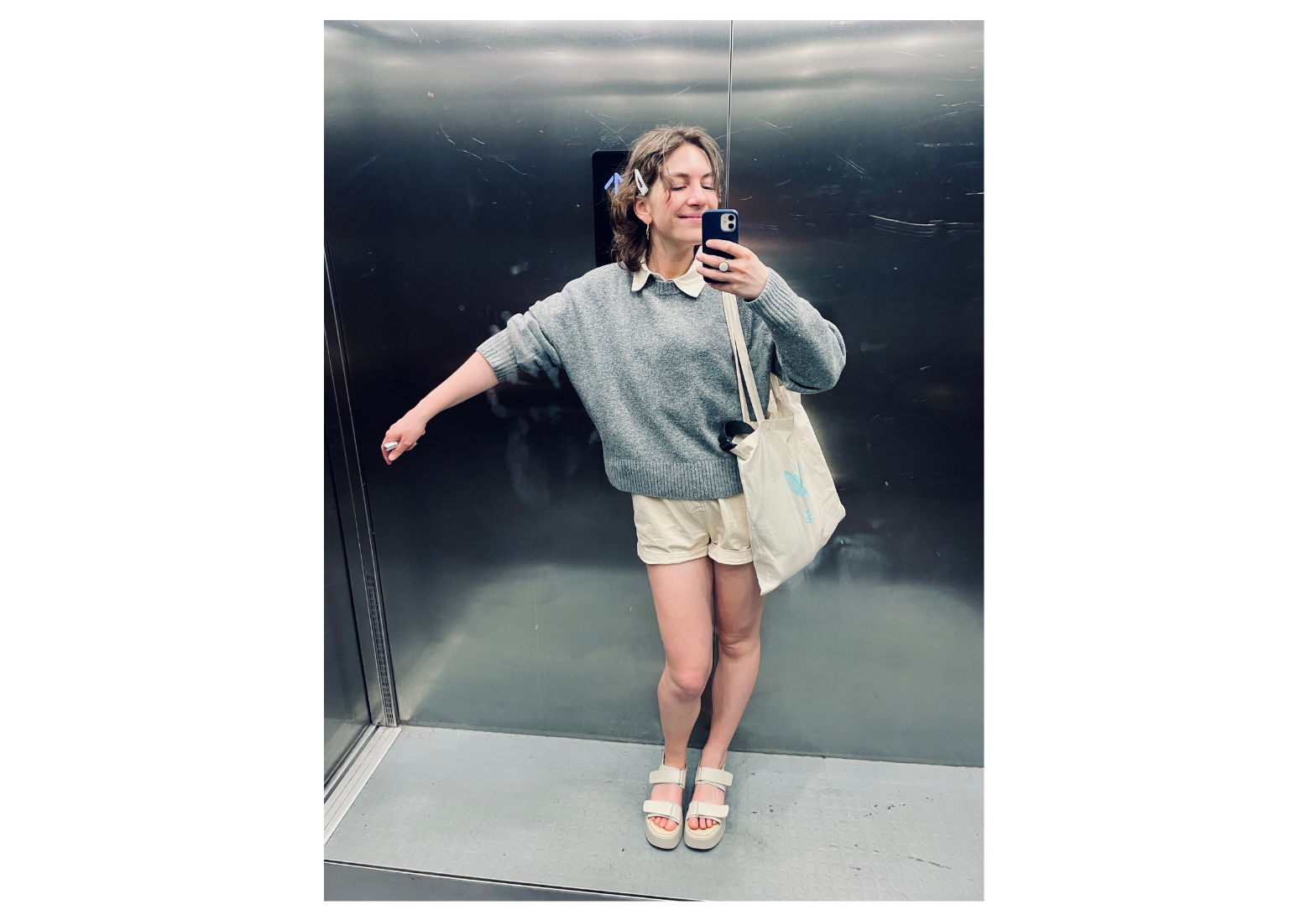Writing as a Tool for Self-Trust and Emotional Healing

I used to believe clarity would come from learning more — being more certain, more ready. But the real shift? It came from giving myself permission to trust what I already knew.
Permission – Reclaiming Voice and Presence
A year of writing this newsletter has shown me just how long I’ve been carrying certain truths. Quietly, in the background of my life.
The shift wasn’t in discovering them, but in finally allowing myself to live them fully.
I had to grant myself permission.
For years, I doubted my own authority. I deferred to others’ certainty, assuming their clarity came from knowledge I lacked. To avoid conflict, I softened my voice and rarely asked for what I wanted. I waited. Hoping others would notice, affirm, or invite me in.
I became skilled at making others feel safe. I smiled, reassured, even asked questions I already knew the answers to, just so they could feel helpful.
Over time, I saw this wasn’t just my pattern, but part of a cultural script—especially for women. Many of us are taught to prioritize likability over truth. This is internalized patriarchy: the impulse to soothe, accommodate, and shrink.
These dynamics often shaped how I related to men, especially those eager to explain or advise. Letting others define my world—not out of humility, but habit—wasn’t just disempowering; it was misleading. Offering passivity when I feel clarity doesn’t honor the truth of who I am. (And when I need support, I now ask for it. Without erasing myself.)
“To be ourselves causes us to be exiled by many others — and yet to comply with what others want causes us to be exiled from ourselves.” — Clarissa Pinkola Estés
Of course, the story isn’t only about shrinking. I’ve always been curious, open-minded, and eager to learn from others. But too often, that openness left me on the sidelines—watching others shine while holding back my own voice.
Reversing that habit has taken time. The turning point was subtle but powerful: giving myself internal permission. Permission to trust what I know. To form and voice opinions.
That’s why writing became the catalyst. This newsletter has offered a space for uninterrupted reflection. Here, I’m not pouring my attention into someone else’s needs. I’m sitting with my thoughts, noticing what wants to be said.
Still, old patterns remain.
Sometimes, when I’m sharing something vulnerable and the other person looks away, I stop mid-sentence. Shame rises, and I question myself.
Is my sense of self really that fragile? Can a glance undo my self-esteem?
But in the presence of attunement, something shifts. When someone listens—truly listens—my body relaxes. I feel met, and I open. It’s in those moments I remember: my voice matters. And often, what feels deeply personal touches something universal. We all know self-doubt, tenderness, grief, hope. When I share honestly, it sometimes resonates. It might even help.
Humans are relational beings. We are shaped in connection, wounded in disconnection, and healed through presence.
Whether in conversation or through writing, sharing is a way of weaving invisible threads. These threads soften the edges of isolation and remind us: we’re not alone.
My background in psychology continues to shape my understanding of these patterns. I draw insight not only from theory, but from conversations with friends, from other writers, from moments of shared reflection. Each insight I receive compels me to offer something in return.
And so, I speak—carefully, but clearly. I give myself space to be heard.
I’ve also learned to be selective. If someone isn’t listening, I stop. Not to punish, but to protect. Some things aren’t meant to be shared with absent eyes.
Relational-Cultural Theory, a framework developed by feminist psychologist Jean Baker Miller, teaches that human development happens "through and toward connection." That idea has stayed with me. Vulnerability alone isn’t the point; it’s the presence that meets it. Growth occurs when both people are open, engaged, and changed by the encounter.
This is what I cherish most about writing here. The process is dialogical. I often explore these themes aloud with my partner, housemates, and friends. It is deeply affirming to realize how much of what I feel exists in others too. Our mutual influence is the heart of this work.
Thank you for choosing to be here—to receive these reflections. Your presence matters more than you know.

Patience – Letting Growth Unfold Naturally
The second lesson I’ve learned is patience.
When I first began this blog, I secretly hoped that writing would bring dramatic change. That by expressing myself openly, somehow, magically, I would transform—that suddenly all problems and doubts would be gone.
Of course, that was an illusion. Wishful thinking. There is no secret elevator that suddenly lifts me away from daily issues just by starting this newsletter. No easy way up—whatever ‘up’ was supposed to mean.
This hope for sudden transformation isn’t new. As a younger girl, I believed a kiss or first sexual experience would fundamentally change how I’d feel, who I’d be. How others saw me. That it would make me more real, more worthy.
Of course, no such shift occurred.
And no one was watching me as closely as I imagined.
Do these patterns of expectation sound familiar to you?
- If I just get the degree, I’ll feel accomplished.
- If I earn enough, I’ll be respected.
- If I look a certain way, I’ll be loved.
I carried a similar belief into this blog. That if I wrote truthfully, my struggles would evaporate. That success would arrive.
But over time, I’ve let go of those fantasies. Publishing no longer brings the thrill it once did. I don’t wait for applause. I press 'send' when the words align with what’s true—when they make me nod in recognition.
This first year of working on my newsletter has been about showing up, writing regularly, and keeping my word to myself.
Occasionally, someone writes back. And that moment of recognition means the world. But more than anything, I’ve learned to value the quiet commitment of this practice.
Patience has taught me to stop chasing outcomes and start listening inwardly. To seek alignment over performance. To find steadiness in my own rhythm.
Through this, a deeper self-trust has emerged.
Patience, it turns out, isn’t passive. It’s a powerful way of staying with ourselves as we grow.
Inner Work – Honoring the Ongoing Process
Permission and patience are not milestones; they are practices—ongoing, imperfect, and alive.
This year of writing has brought me closer to myself than I expected. That is the real shift. Not the change in circumstance, but the change in self-relation.
Doing this inner work—slowly, steadily—has fostered a quiet confidence. I feel more rooted in who I am. I understand what matters to me. That clarity brings peace and gives me the resilience to continue, even when progress feels slow.
I don’t want to write another self-help newsletter full of “life-hacks”—not because I don’t value them, but because I’ve found that meaningful change doesn’t come from formulas. It comes from staying close to yourself.
Instead, this space will remain a home for the unpolished, the quiet, the unresolved. For the emotions we’re taught to hide. For truths that live beneath the surface.
I give myself permission to stay here. To move with patience.
For myself—because I’ve always needed a space like this but didn’t know how to find it.
And for you—because maybe, you need it too.
Sitting with shame, vulnerability, and truth takes time.
Is there something you haven’t yet given yourself permission to explore, speak out loud, or create?
Sit with it.
In stillness. Or while writing, dancing, running, doing the dishes.
Sometimes, sitting with a feeling means pausing mid-motion — placing a hand on your chest, noticing the tightness, letting the story fall away for a moment.
It means allowing the wave to crest without needing to name it.
I’ve learned to say things like: “This is hard — and I’m here.”
That’s not a hack. It’s just presence.
And presence might turn into permission. Into self-trust. Into grace.
Thank you for taking the time to sit with me. I hope it gives something back.
If this stirred something in you, I’d love to hear it. You can reply, leave a comment, or simply write a line in your notebook. Your voice matters—and it’s always welcome here.
If you're moving through similar questions and want a space to explore them more deeply, I offer 1:1 coaching rooted in the same presence and care this space holds.
🌿 Learn more here or reach out to connect.




Comments ()